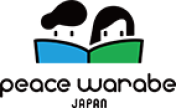[Kenya]Breaking the Silence
It is 37 degrees on this day in Turkana West Sub county as we walk to a compound where one of our girls focus groups discussions are being held. We expect to get feedback from girls, women, boys and men on menstrual health issues following a distribution of 8,000 reusable sanitary pads, that were locally produced, to girls aged 9-14 years and caregivers 14-50 years. Dubbed the Kerry Pad, these materials are expected to provide vulnerable girls with some sense of security and comfort during their menstrual period. Previously, the girls had to rely on donations and well-wishers to ensure they managed this monthly occurrence. A unique partnership between the Kerry Pad manufacturers and Peace Winds Japan (PWJ) seeks to ensure that more and more girls can safely manage their monthly period in dignity. A pilot project, that ran from February-December saw 4,000 girls receive the pads coupled with training around Menstrual Health.
![[Kenya]Breaking the Silence 1 f08543828bec2ae3c09b3ec961cf01a9](https://peace-winds.org/wp-content/uploads/2021/05/f08543828bec2ae3c09b3ec961cf01a9.jpg)
“The facilitators were one of the best, they were well equipped with the best knowledge on Menstrual Hygiene Management,” said Ekai one of the participants. This was after a training that targeted both girls, boys, men and women whose main objective was “breaking the silence” around menstrual health issues. In December 2020, during the post distribution monitoring exercise, participants commented that the training on MHM was very interactive and they can’t wait to use what they learned to educate and sensitize the community on periods. The training content, that was delivered too various stakeholders, focused on components that sought to equip the participants on skills that would enable them break the silence, understand various products and how to safely dispose sanitary pads. MHM clubs, in schools, will help to sustain the spread of information ensuring that both girls and boys are knowledgeable on this biological process
![[Kenya]Breaking the Silence 2 cd8151dd8007a564772abf47a21332c0](https://peace-winds.org/wp-content/uploads/2021/05/cd8151dd8007a564772abf47a21332c0.jpg)
Production of the pads was done by ten tailors from the refugee camp based out of the Jitegemee Center, who appreciated the opportunity to change a girl’s life while improving their livelihoods. The very experienced refugee tailors followed all instructions and gave numerous inputs to ensure the pads were produced in time. Over 4,000 pouches were also produced to be a storage for the pads. It took 46 days to train the tailors and complete production, as it was a new concept. Another partner, Living Health Initiative (LHI) conducted the training that touched the tailors lives. Immaculate, one of the tailors who used to commute from Kalobeyei to Kakuma for production mentioned how happy she was that she was trained and equipped with new knowledge (pads production). She enthusiastically commented, “I have been seeing reusable pads in my country where they were only sold in supermarkets and were not cheap. But now l get to produce them and l am hoping the girls will love them as they start using the reusable pads”. Some other tailors also appreciated working on this unique project in a group as it was a new experience that taught them and they hope to improve lives.
Despite cultural aspects that hinder them from talking about menstruation, neighborhood leaders in Kalobeyei seemed at easy and chatty on the topic as they indeed their silence was broken. They yearned for more training and knowledge saying that it was important for them to know how to approach the topic when in the community, especially in bursting myths that contributed to negative cultural practices such as early marriages.
During the pilot project, one of the activities was to train facilitators on MHM, SGBV, and PSEA which took 1 day for each village in Kalobeyei. Through the training, the women narrated how initially scared they were when their periods came, and due to lack of menstrual materials, they used a piece of cloth to manage their periods. Some mentioned having supportive parents who helped by advising them how to clean themselves, place a pad on the panty, and how to dispose of the pad after 4-5 hours, something the wanted all girls to have. During distributions the facilitators were a huge help as they each mobilized girls/beneficiaries from their neighborhoods. Initially, the girls were very shy, and would giggle at every mention of periods. I was mesmerized at how many would volunteer to come in front and demonstrate how to lay/put a pad on a panty. The caregivers would share their stories with us on how they have been managing their periods most using a piece of cloth and some sitting of sand or using goatskin.
Post monitoring distribution was done later on to determine if the girls were using the reusable pads, if not why. We interviewed 674 girls and caregivers and held a focus group discussion of 8 people per Girls, women, men, and boys in Kalobeyei settlement, Kalobeyei host community, and Lopur ward.
“Women don’t involve us in this discussion, however from this l will always support my wife and children by ensuring they have pads during their menstruation,” said Lokuda during an FGD session.
Most men felt menstruation is a woman issue and them talking about it is against their culture but after the discussions, they all left open-minded and promised to support their wife and daughters manage their periods with dignity. For women and girls, they were all appreciative of the pads they received, and most of them who had had their periods before the PDM mentioned they used the reusable pad and they would recommend it to their friends. Most mentioning how it will save them money as the amount they will receive for soap can be used to purchase more panties for them or food in the household. Akiru mentioned she won’t have to miss school due to lack of sanitary pads.
By Magdalyne Were.
![[Kenya]Breaking the Silence 3 c78141b4ab25715dade1fae6dbb69483](https://peace-winds.org/wp-content/uploads/2021/05/c78141b4ab25715dade1fae6dbb69483.jpg)






